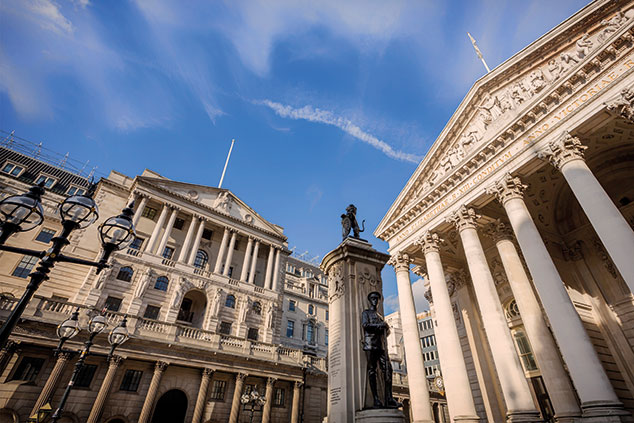
A15%-per-year compound rate of return over 36 years will multiply an investor’s money 153-fold. Although this sounds impossible, this is the return that Peter Spiller has generated since he took over at Capital Gearing Trust (LSE: CGT) in 1982.
Ardent bulls, however, should steer clear. “Wealth preservation remains at the heart of everything we do,” says Spiller. This has meant a consistently bearish stance towards equities in recent years, resulting in investment returns well below the long-term average: 3.4% over one year, 24% over three years and 31% over five.
Those who share Spiller’s views, though, will regard these returns as far superior to the safe alternatives of cash or government bonds. Moreover, in months in which global equities have fallen, CGT’s net asset value (NAV – the value of its underlying portfolio) has, on average, barely slipped over the last 12 years, and is far better than other defensive funds.
Feet firmly on the ground
Though current asset allocation claims 36% in equities, just 12% is in conventional equities, while 16% is in property and 8% in infrastructure, loan funds and private equity. A total of 35% of the portfolio is invested in index-linked bonds, 9% in conventional bonds, 17% in preference shares and corporate debt and 3% in cash or gold.
While other bearish investors tend to focus on geopolitical issues, Spiller keeps his feet firmly on the ground. His concerns are economic: the US is in the late stages of the business cycle; US investors are over-exposed to equities; and the authorities are complacent about the long-term risk of inflation.
He worries that global debt relative to the size of the global economy has continued to rise even after the 2008 financial crisis; corporate borrowing is rising while the quality of the debt is falling; and central banks are too focused on the requirement to avoid a recession. The conclusion is not that the end of the world is nigh, but risks are rising and the prospective long-term return from equities is falling. The £260m trust trades at a premium to NAV, helped by a “zero-discount” policy of buying in shares when they fall to a discount.
An interesting alternative
An interesting alternative for investors who are cautious rather than bearish is RIT Capital Partners (LSE: RCP), though its shares trade at a persistent premium to NAV. (The Rothschild family is not keen to see its 21% stake diluted through issuance, which would bring the premium down.)
With returns over five, three and one year of 56%, 32% and 8% respectively, RIT has lagged global equities in the good times, but performed extremely well in this year’s more difficult markets. However, Iain Scouller, an analyst at brokers Stifel, suggests the trust is not as safe as investors think.
RIT’s share price has multiplied 33-fold since 1988 with dividends reinvested (12.6% annualised), nearly four times the return of global equities but well behind CGT. Gross equity exposure at mid-year was 57% of assets and net exposure, after hedging to reduce this figure, was still 47%. In addition, RIT has 22% invested in private equity, which is not subject to the valuation swings of listed equities, but is vulnerable to economic factors. This, Scouller says, justifies a premium nearer the 2% RIT reached in March than the 10% in July, despite the “hidden asset” of potentially undervalued private-equity holdings.
This defensive but not bearish stance accounts for the enduring popularity of the £3bn RIT, as does the association with the Rothschilds. More resolute bears should focus on CGT.